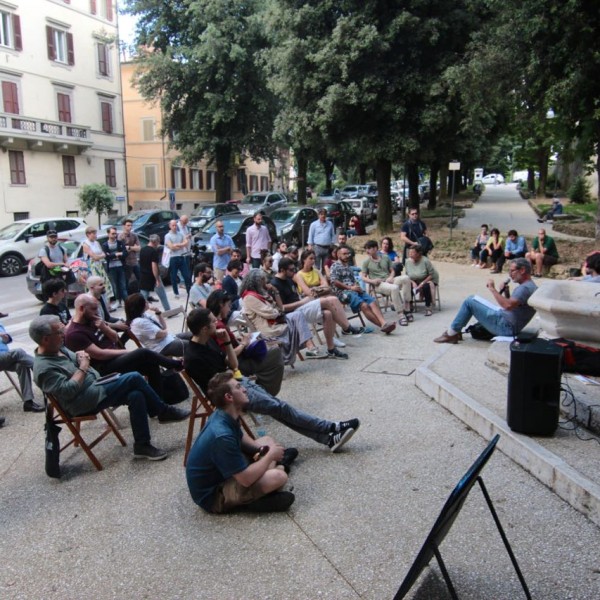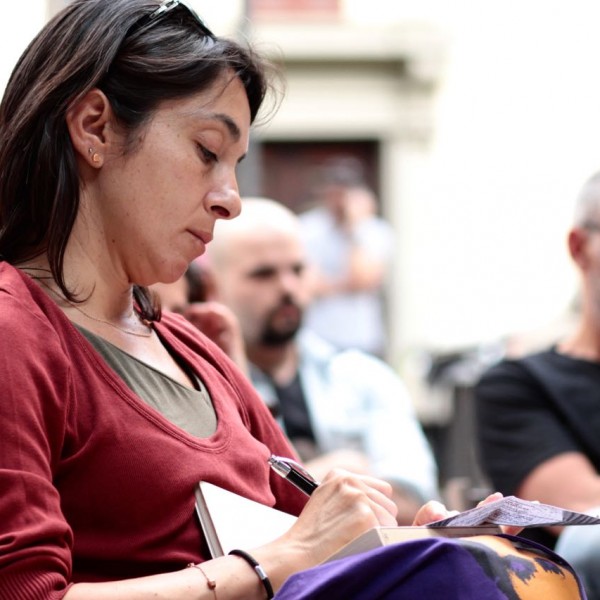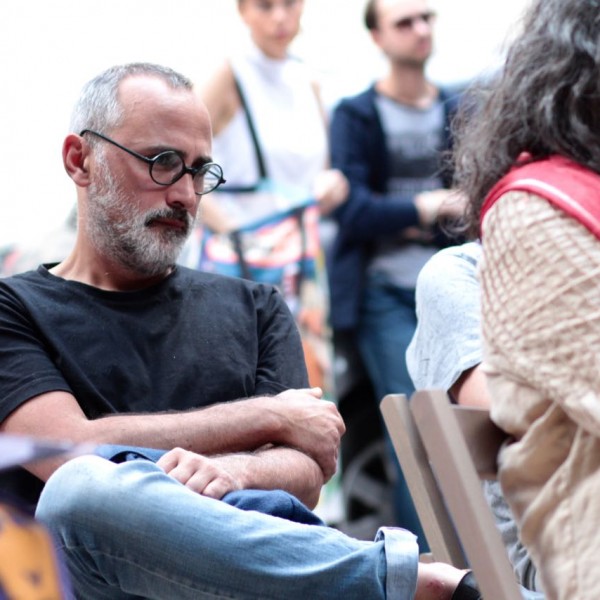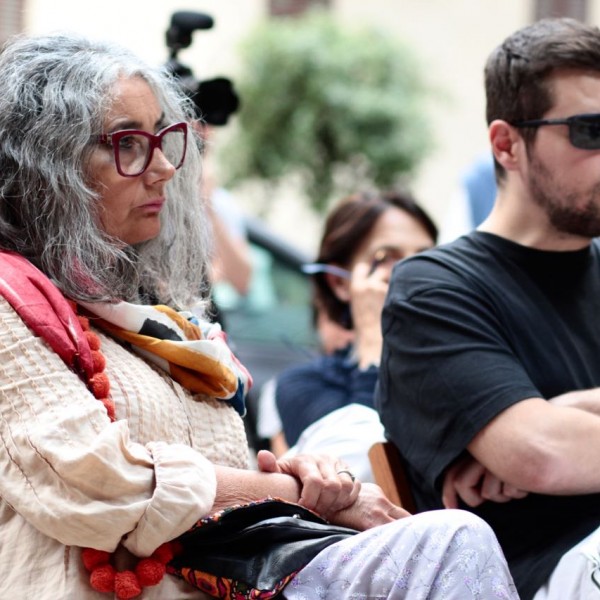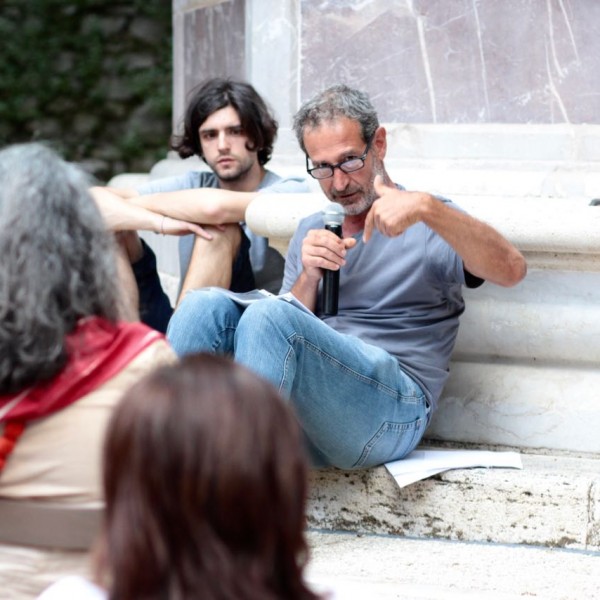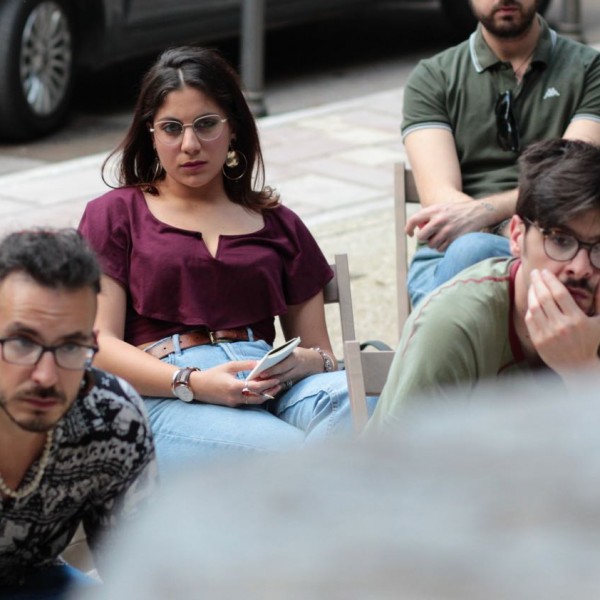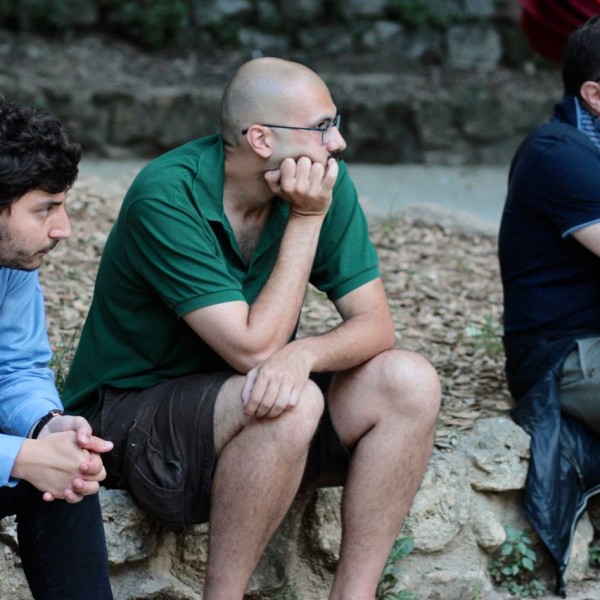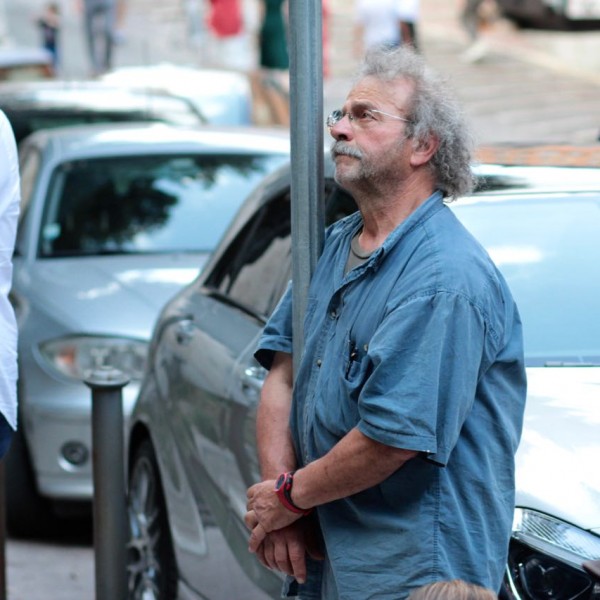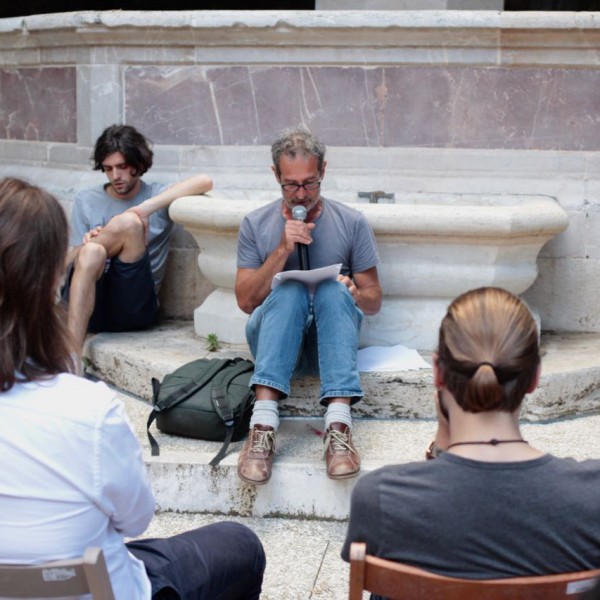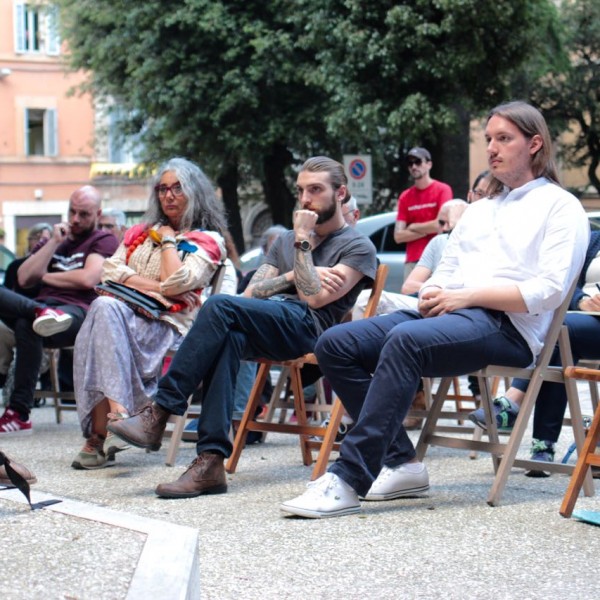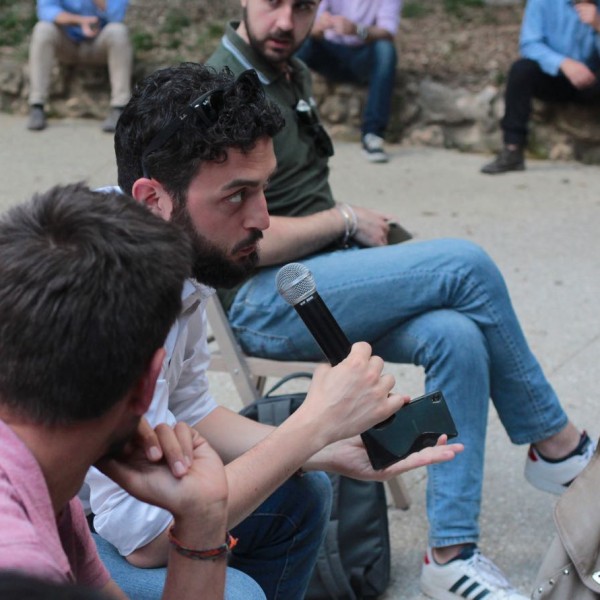Is it worth it? Let me work it
I put my thing down, flip it and reverse it
Missy Elliott, Work it
Unfortunately Missy Elliott was unable to attend our first chapter of anarchic lessons but we definitely worked it out with a little help from anthropologist and professor Stefano Boni – we even had the weather gods finally by our side and a proper debate in our agora of choice, the gardens next to the Edicola 518.
It took our kind a long time to get here – to our 9 to 17 cubicles, to our freelance projects, to our coding and software, our social media influencers, our obsolescent machines and handmade outbursts of creativity. To our comfortable and codependent slavery proudly supported by MasterCard and forced labour. Stefano Boni took us on a trip to the dawns of humanity, from our times as hunter-gatherers in a society of abundance to the invention of agriculture and the beginning of our domestication. Yes, our domestication, as Boni quoted James Scott on how while we were busy settling down, taming domestic animals and seeding grains for a new type of accumulative society, the ones that were becoming domesticated and tied down were in fact ourselves: no longer hunters and explorers adapting to the environment, but rather slaves to our potatoes and everything that came along with them.
From that point onwards society never fully regained its autonomy in terms of work and with every new technological conquest meant to liberate, new means of control were instead being enforced: from the industrial revolution, to Marx’s theories of alienated workers, from buddhism as one of the very few forms of resistance, to unworkable knowledge, dying practices or banks and stock exchanges overlooking and controlling means of realities as kings once retained absolute power, it’s been quite a ride. Now, in a time of almost desperately seeking some sort of authenticity, we have our series products personalised, our life made of obsolescent pieces and smart updates, and our bio products ironically trying to give back some unique roots in global supermarkets. It’s enough to pull just one element from the chain to see chaos emerging. With a fragmented production and an almost absurd level of technology, our societies though seem far from being liberated: codependency and lack of autonomy run our strictly connected rituals of work and consuming on a fast track nobody seems to know where, or why, is running.
From slaves to cereals we have come a long way to slaves to our phones, our likes, our status cars and clothes: we slave for our wages in order to spend them on things other people slave across the world to produce and sustain this lifestyle. So how do we work around that? How can we rethink the chain of events, the ever consuming circle and most especially, how do we fight back? This was the spark for a long series of conversations with the public, with questions and examples alike and with an underlying red thread of resilience and leaving one’s comfort zone in order to think and then act accordingly, with a new, necessary mindset.
After all, the options are out there. We just have to work our way to them.






